NZIFF 2025 Craccum Coverage | Kontinental '25
Camus said life is absurd; Radu Jude agrees—but adds neoliberalism, CapCut-edited memes, and EU development funds to the mix.
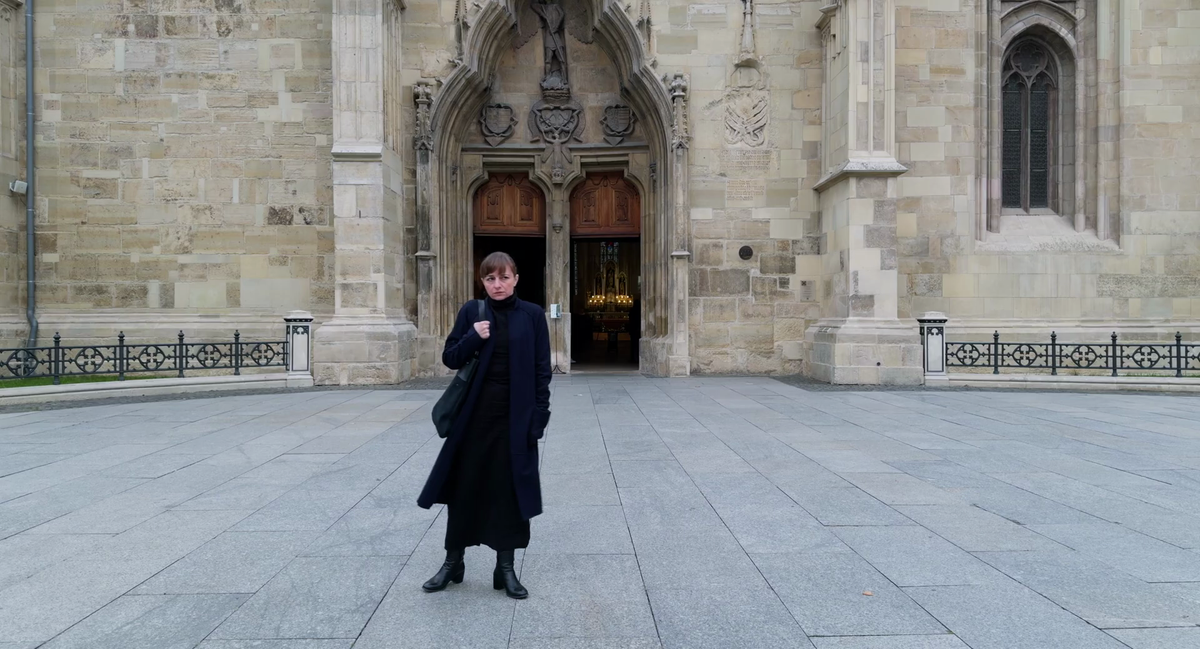
Only optimists commit suicide, optimists who no longer succeed at being optimists. The others, having no reason to live, why would they have any to die?
— Emil Cioran
Add Radu Jude to the list of auteurs I should've engaged with sooner and now regret for cucking myself to one of the most exciting contemporary filmmakers right now. I see traces of the greats (Buñuel & Godard especially) punctuating his every satirical skewering of modern-day Europe. My bad, Radu. I was not familiar with your game.
The sickly humour and jovial eagerness to luxuriate in watching our characters fumble through every conceivable opportunity for social mobility—and even social justice—in retaliation to their current socioeconomic despondency is pure Buñuel. Specifically, there's a clear focus on the jadedness, exhaustion, and political haplessness of Romania's university-educated middle class, robbed of any writerly eloquence or bourgeois passive-aggressiveness you would see in a Rohmer or Stillman film. But unlike Rohmer or Stillman, personal desire and the capacity to manoeuvre seamlessly between social classes are as calcified and rigid as the centuries-old Gothic cathedrals and townhouses populating the Transylvanian city of Cluj. The shadowy, sinister vampires of cinema's Nosferatu/Dracula archetypes take on a more disembodied aether: the invisible, systematised vampiric allegiance to global capital.
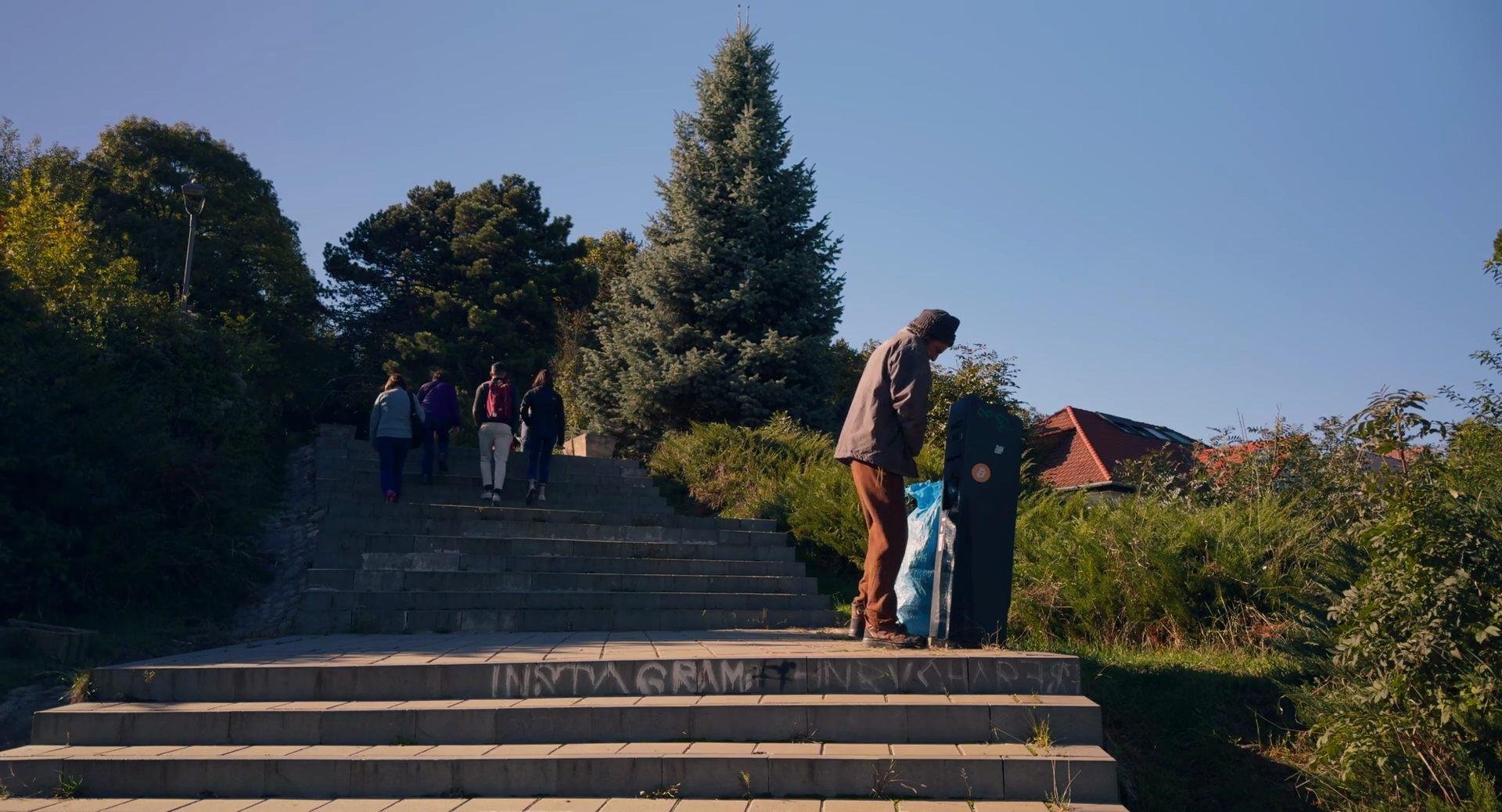
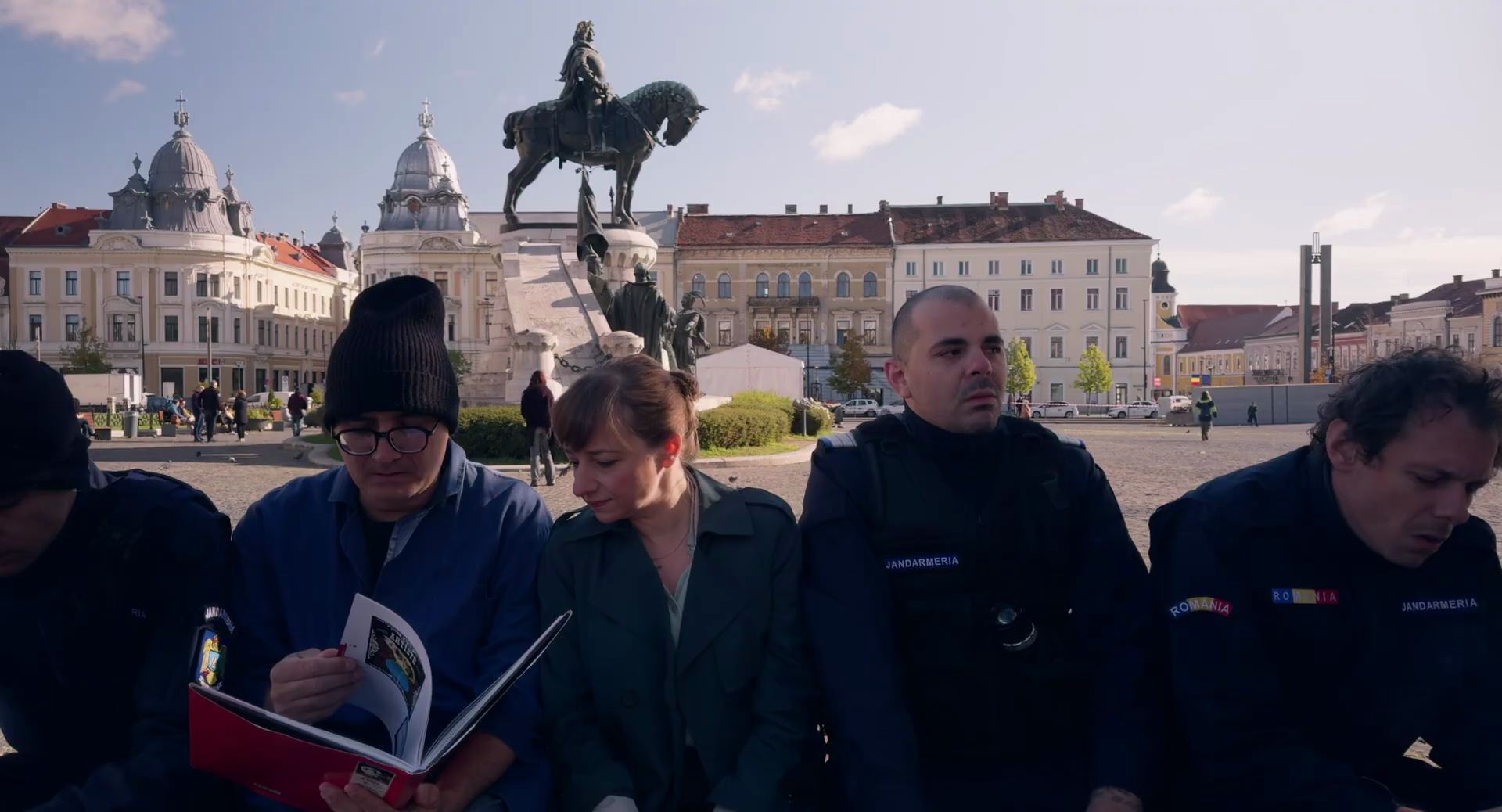
Images courtesy of Luxbox.
A poor vagabond temporarily staying in the boiler room of a large house is on the final days of his extended grace period before he is evicted from the property. The property—owned by the son of the vagabond's friend living abroad—will be renovated to become a hotel. Our protagonist, a bailiff, is suddenly thrown into an existential crisis when the vagabond commits suicide inside the house. From here, Radu will position our bailiff in stark contrast to the cesspool of apathetic, racist, and chauvinist cast of friends, family, and strangers who can only provide measly consolations or spiritual and sexual distractions from confronting the abyss that has gobbled and atrophied any possibility of a functioning welfare state. If you happen to not belong to the growing population of unlucky 20-somethings with a master's degree working DoorDash full-time, you'll probably live long enough to end up as an insufferable NGO consultant in your middle ages touting your moral superiority for helping children in Africa whilst muttering under your breath your revulsion towards the homeless person squatting near your apartment building wishing they would finally perish in the winter season if it meant no longer adjusting your commute route to avoid seeing them or dealing with their horrid stench.
Such urban cynicism informed Godard's work for most of the 70s-80s—disillusioned by the failed revolutions of May '68—that Radu now weaponises against the 21st-century milieu of decreasing political agency and increasing cultural superiority complexes. There are no 'moral hypocrisies' exhibited by any of the characters in Kontinental '25 because the contradictions are 'built-in' and inherent for the modern European civilisation to flourish. In fact, it's a contradiction that informs Radu's choice in titling this film after Rossellini's Europa '51 (1952); the saintly naiveté of Ingrid Bergman's character and her philanthropy towards the poor and marginalised in Europa '51 was a lifestyle choice she could afford to make thanks to her wealthy background, married to an American industrialist. The same can't be said for our bailiff protagonist. The wealth gap between her and the homeless people she aims to help is not as wide as one innocently thinks; there's nowhere else to look down further beneath the trenches once you reach the bedrock of poverty, except for certain death. Police and government officials assure that our bailiff is not at fault for the vagabond's suicide—and they're right, albeit unbothered and desensitised by the tragedy, diminishing it as a trivial annoyance, an inconvenient interruption to the day-to-day drudgery of their daytime jobs.
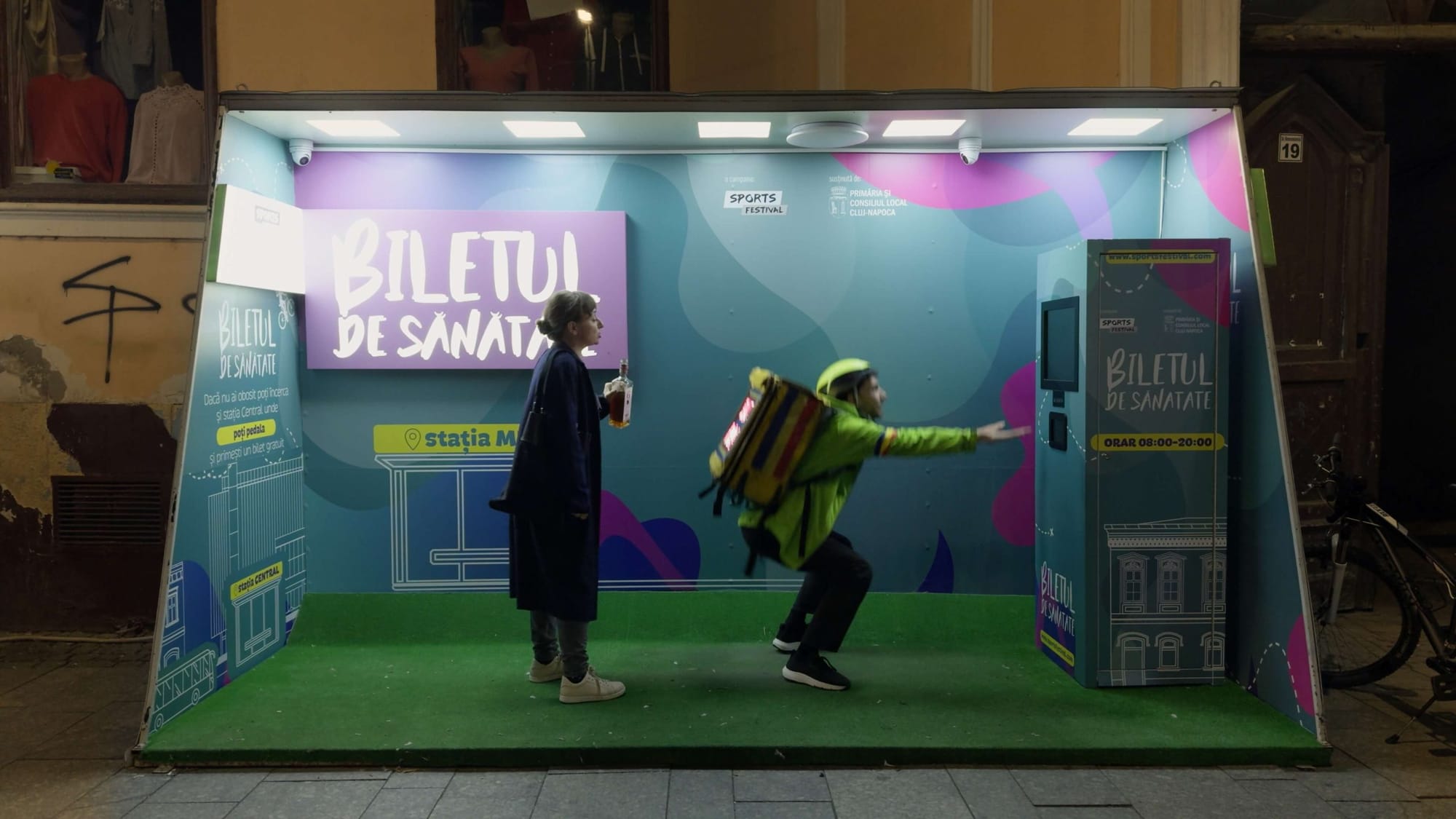

Images courtesy of Luxbox.
And just like Godard, characters in Kontinental '25 speak almost exclusively in quotes, making references not just to culturally specific points in Romania's history (the 1918 union of Transylvania and Romania after Austria-Hungary's collapse) but also to films (classics like Ulmer's Detour, Rossellini's aforementioned Europa '51, Brecht's Kuhle Wampe, alongside more recent movies like Wenders' Perfect Days and the Florence Pugh-Andrew Garfield romance We Live in Time), semi-fabricated philosophical zen anecdotes, and internet brainrot memes that I find hilarious unc Radu is even aware of their existence at all and its AI slop manifestations. Some might say this barrage of encyclopaedic juxtapositions of various texts against each other is a superfluous, cheap technique that Godard and Radu share by avoiding any nuanced addressing of their artistic preoccupations, a deliberately regressive alternative to the more coherent conventions of dramatic narrative. My response to that is, to quote Serge Daney talking about Godard's cinematic temperament in Here and Elsewhere (1976),
there was a sine qua non for the Godardian pedagogy: never questioning the discourse of the other, whoever he is. Simply taking this discourse literally, and taking it at its word. Concerning oneself only with the already-said-by-others, with what has been already-said-already-established in statements (indiscriminately: quotations, slogans, posters, jokes, stories, lessons, newspaper headlines. etc.) Statement-objects, little monuments, words treated as things: take them or leave them… Hence the malaise, the "confusion" with which Godard is often reproached. To what the other says (asserts, proclaims, extols) he always respond[s] with what another other says (asserts, proclaims, extols). There is always a great unknown in his pedagogy, and that is the fact that the nature of the relationship he maintains with his "good" discourses (those he defends) is undecidable.
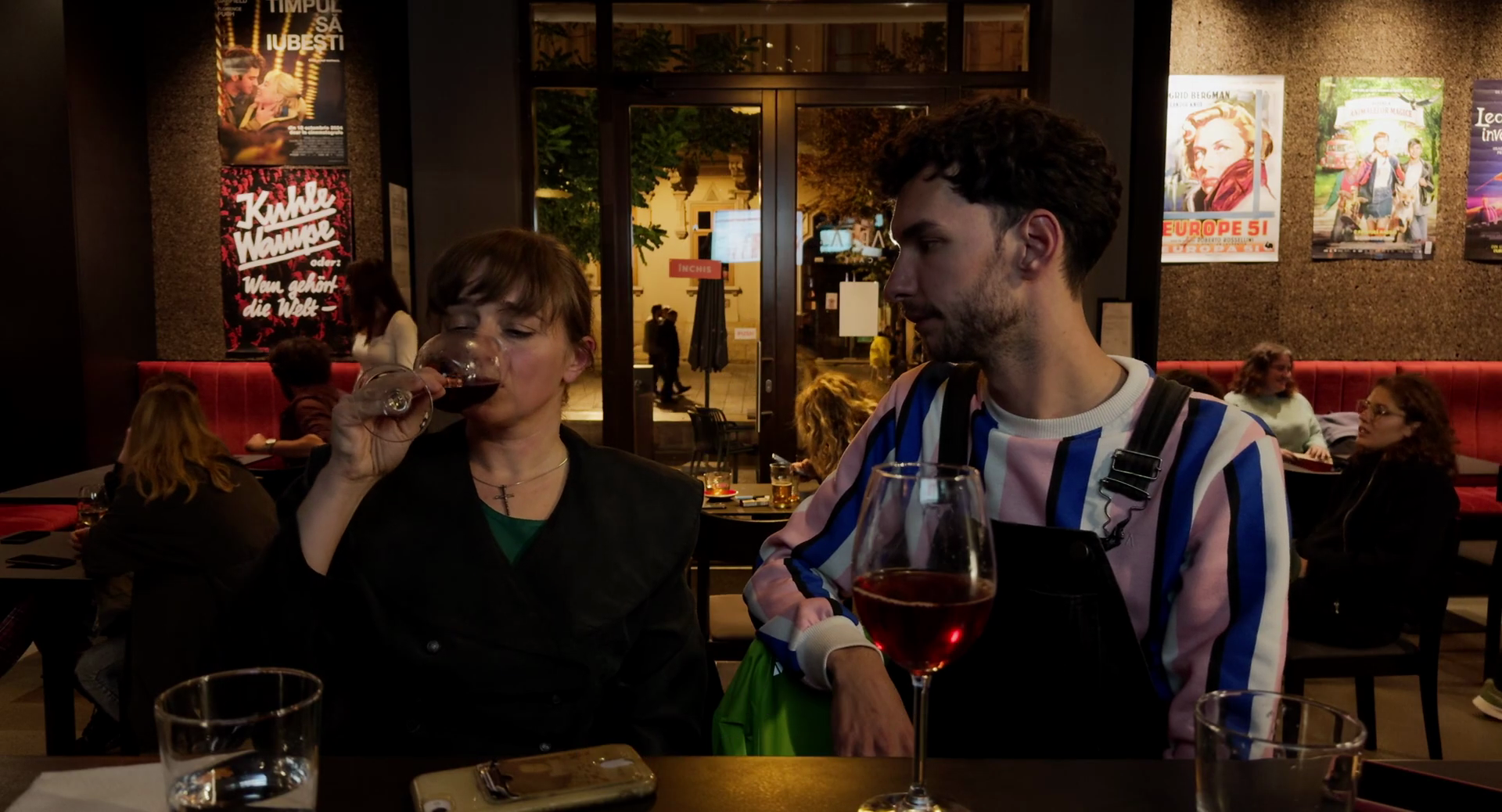
Though Radu won't hit you with an explosion of images superimposed and cross-dissolving over each other as Godard would, it doesn't take long for one to realise that Radu doesn't adopt the pretentious disposition of some all-knowing, sageous 'artiste' whose artistic expressions are intuitive, therefore universal. In fact, Radu treats his curated collection of texts plastered throughout the film as counter-arguments, as points of contention or supplication to the ongoing scenarios and conversations happening in the foreground. He neither supports nor opposes his discrete textual constituents, but instead devises situations where their collision is simultaneously humorous, but darkly tragic in its sociocultural implications. Is our bailiff's guilt over the death of the vagabond akin to or axiomatic to Tom Neal's guilt over the death of his driver in Detour, or to Ingrid Bergman's guilt over the death of her son in Europa '51? And if our bailiff no longer has to worry about guilt, should they adopt a more optimistic, simple-mindedly eager approach to evicting even more homeless people just like janitor Hirayama does for toilets in Perfect Days? If the dialectic between innocence and guilt wasn't obviously satirised from that last comparison alone, Radu slaps us across the face and has his characters misinterpret Brecht's famous quote, "The more innocent they are, the more they deserve to be shot," as Brecht advocating for the death of supposed faultless victims of oppression instead.
All of this without even mentioning how much Radu draws from other filmmakers like Straub-Huillet (although a more appropriate comparison is Jia Zhangke) in his approach of landscapes and the invisible "historical tensions" of every Romanian locale he selects and then juxtaposes against any of the conversations our characters might be having in the foreground. Wide shots of towering cathedrals, city halls and tower cranes promising cheap housing within the outskirts of the city centre impose their presence on the soil, that same soil that has seen bloodshed of ethnic Hungarians and Romanians for their respective nationalist agendas where each and every centuries-old building resemble needles pricking the Earth's skin, sinking deeper and deeper and until the pus of a growing homeless population seeps out from the basements of gentrified city streets and gated communities. The film's ending may feel like the economic equivalent of a therapeutic acupuncture treatment where each newly built house becomes a site for potential domestic growth and progress. But in reality, each new architecturally minimalist residential establishment only prolongs the suburban stratification and obliviousness of today's familiar consumerist lifestyles.
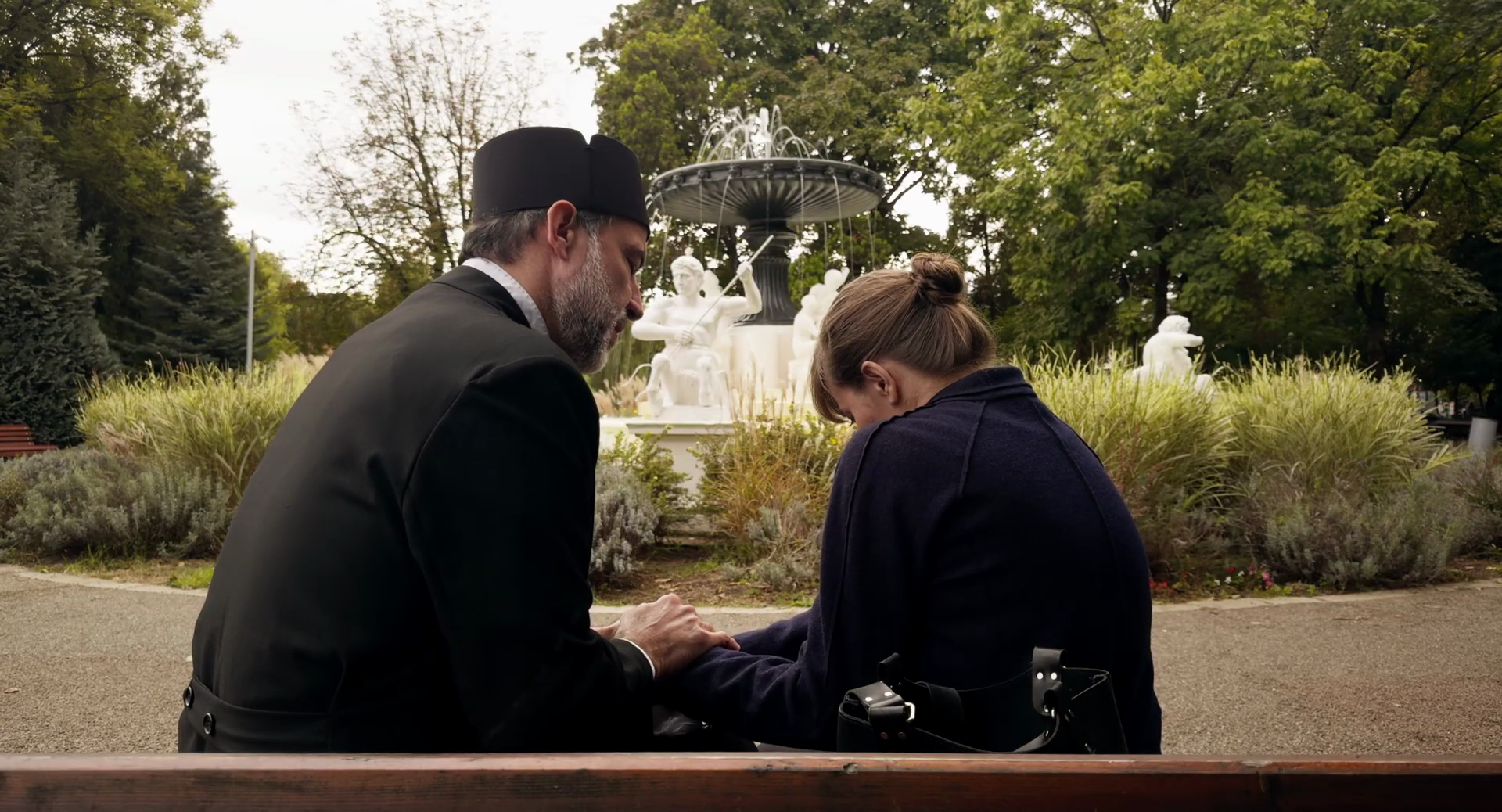
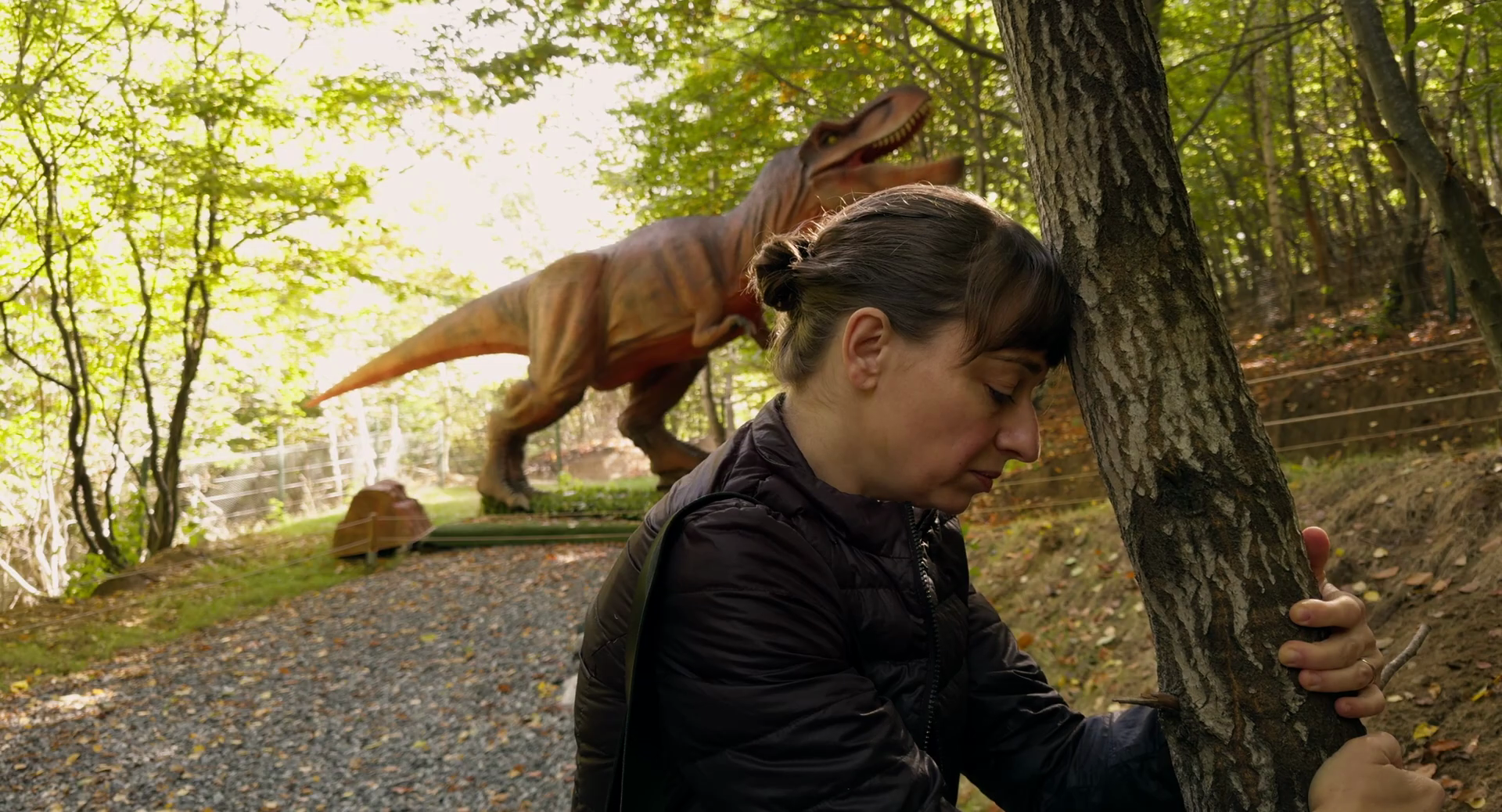
Images courtesy of Luxbox.
Much like how Kiarostami frames his characters riding in cars, Radu can only accompany us as our bailiff drives to the Google Maps-generated directions to their predetermined fate, the unceasing routine of her guilty conscience. Their face looking out into the windshield of their car evinces the same wide-eyed, desirous longing amidst the unknown off-screen akin to a Mr. Badii in Taste of Cherry (1997). Though Radu's playful iconoclasm does exude the learned smugness typical of 'cultured' cinephiles, it is undercut by his disarmingly anti-sentimentalist and anti-psychological approach to his characters that shifts our attention not towards 'what our bailiff will do next?', but towards ourselves and implicating us in the question of 'what will WE do next?' If the economist deals in inferences and projections, the artist thus deals in consequences and repercussions. Radu merely points the camera towards us and says, "See, look at what you've done."
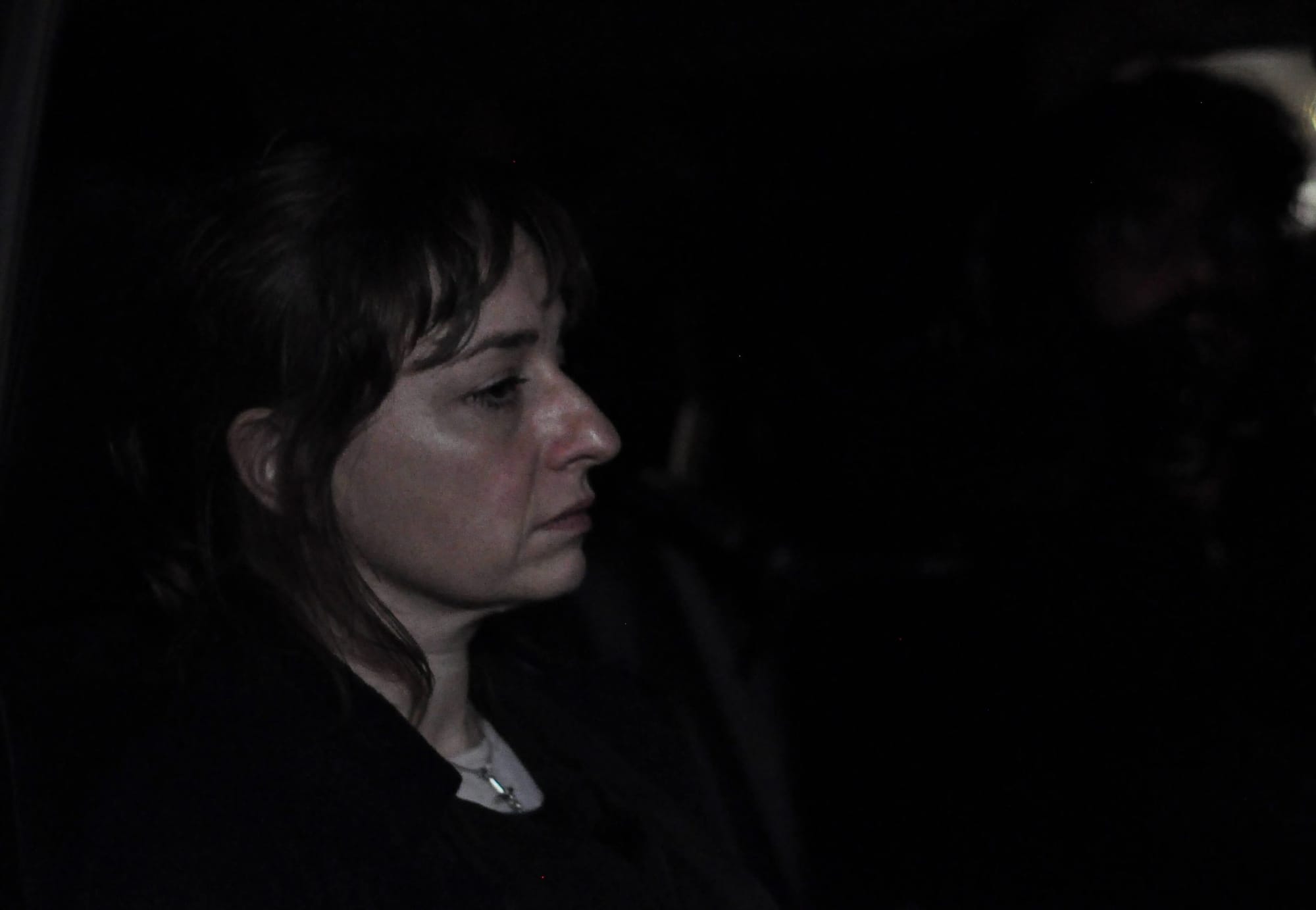
KONTINENTAL '25 by Radu Jude | Trailer | Berlinale 2025
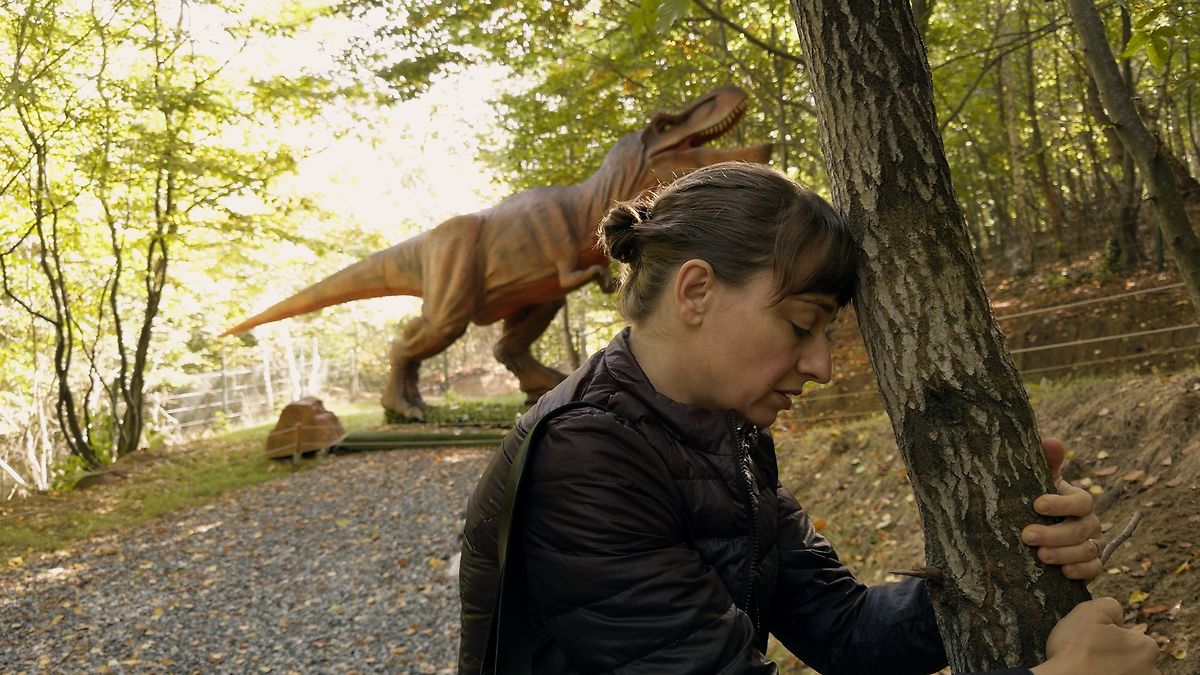
Follow our Letterboxd and Instagram to get live updates and reviews directly from our dedicated student team of film aficionados <3

Disclaimer
The views and opinions expressed in Craccum are those of individual contributors and do not necessarily reflect those of the editorial team or the publication as a whole. While we aim to ensure accuracy and fairness, Craccum cannot guarantee the complete reliability of all information presented and assumes no liability for errors or omissions.







